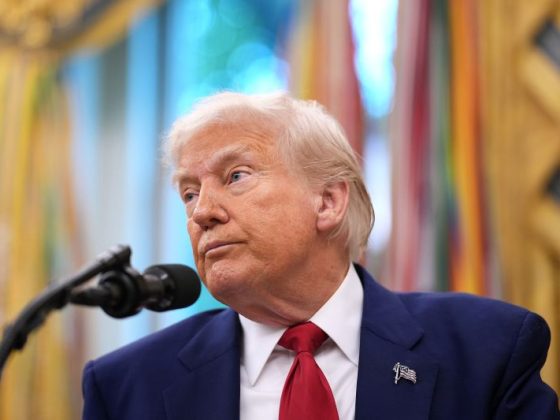If you go to Japan, there’s a chance you might meet someone with an unusual name – such as “Nike,” “Pikachu” or “Pudding.”
While still a minority, these names have grown in popularity over recent decades as parents reject traditional Japanese names for something more unique.
But the practice has also drawn criticism – mainly that it’s confusing for hospitals, schools and authorities who don’t know how to pronounce them.
Now the government is cracking down on these so-called “kirakira” names, which means sparkly or shiny. New rules came into effect on Monday that will limit parents from giving their babies names pronounced in unconventional ways.
The news was met with mixed reactions; some social media users argued that kirakira names are an expression of individualism, that they’re fairly harmless and don’t warrant government regulation.
“They’re not children of the nation, right? They’re children of their parents,” one person wrote on X after the announcement.
Many more, however, welcomed the change – lamenting that children with unusual names might face harassment, or at the very least complications in administrative tasks like registrations or banking.
“Why do certain people put kirakira names on their kids? It just causes those kids to be bullied,” one X user wrote. Another joked sarcastically: “Please stop restricting kirakira names. Seeing a child’s name reveals the intelligence of their parents, which is helpful.”
How ‘kirakira’ names work
Japan uses three writing systems – Kanji, which is based on Chinese characters, and two other phonetic systems. Names are typically written in Kanji, and this is where the trouble comes in.
Because these Chinese characters were mixed with the existing Japanese language, each Kanji character can be pronounced multiple ways – some with ten or more ways. You decipher the “right” pronunciation based on context clues and the other characters in a sentence or phrase.
In kirakira names, which became more popular from the 1980s onward, parents often choose a name based on the phonetic sound – wanting their child’s name to sound like “Pikachu,” for instance – and pick similar-sounding Kanji characters.
The problem is that those characters might not usually be pronounced that way – making it hard, or impossible, for a teacher or nurse to decipher how to properly say a child’s name just by looking at its written Kanji form.
Some have drawn parallels to how American parents have, increasingly in the past decade, chosen unusual spellings for common names – such as Ashleigh instead of Ashley, or Catelynn instead of Caitlin.
The Japanese government’s new rules aim to limit this by mandating that only widely accepted pronunciations of kanji characters will be allowed.
Parents will need to include the phonetic readings of their baby names in the registry – and if local officials see that the phonetic sound of a name doesn’t match how its characters are typically pronounced, they may reject the name or request additional paperwork.
The rise of unusual names
This is not the first time strict naming rules have sparked debate in Japan.
Japan still legally requires married couples to share the same surname, unlike most other major economies that have done away with the tradition. Normally, wives take their husband’s name, since same-sex marriages aren’t legal in Japan.
A movement to change the rules around surnames has been brewing, led by women’s rights advocates and those trying to preserve the diversity of Japanese surnames in a nation where a handful of names are becoming increasingly common.
First names have afforded more room for experimentation – at least, until the latest rules came in.
More and more people have been given unusual names in the last 40 years, according to a 2022 study that analyzed baby names published in local newsletters over the last few decades.
The trend suggests a shift toward seeking “uniqueness and independence” in Japan, the study said – also seen in changes to other parts of Japanese life during that time like family structures and societal values.
Girls in particular saw an increase in kirakira names, it added – perhaps suggesting that parents had a stronger “hope for their daughters to become unique and independent than for their sons.”
Japan isn’t the only country that has seen an upward trend in unusual baby names. A 2016 study found that American parents picked more unusual names between 2004 and 2015, pointing to the culture’s “increasing individualism.”
In China, too, rapid economic growth and upward mobility have meant people today value individualism and autonomy more than previous generations, according to a 2018 study – reflected in the steady rise of parents choosing unique characters in their babies’ names.
Like in Japan, the study found that Chinese girls were more likely to have unusual names than boys – perhaps reflecting different “parental expectations.”
But it’s also common for countries to have rules in place for what names are acceptable. In the US, this is often state-by-state; names in California can only use the 26 alphabetical characters of the English language, which briefly posed a problem when Elon Musk and Grimes named their baby “X Æ A-12.” They eventually changed the name – very slightly – to “X Æ A-Xii.”
In Germany, authorities may strike down a baby name if they find it offensive or potentially harmful to the child’s best interests. For example, they’ve previously barred parents from using “Borussia,” a reference to a soccer team, or “Gastritis,” arguing that the names would “jeopardize the welfare of the child,” according to the official Frankfurt city administration.
Meanwhile New Zealand also maintains strict rules that include bans on references to titles, meaning names like “King” and “Prince” are routinely rejected.


